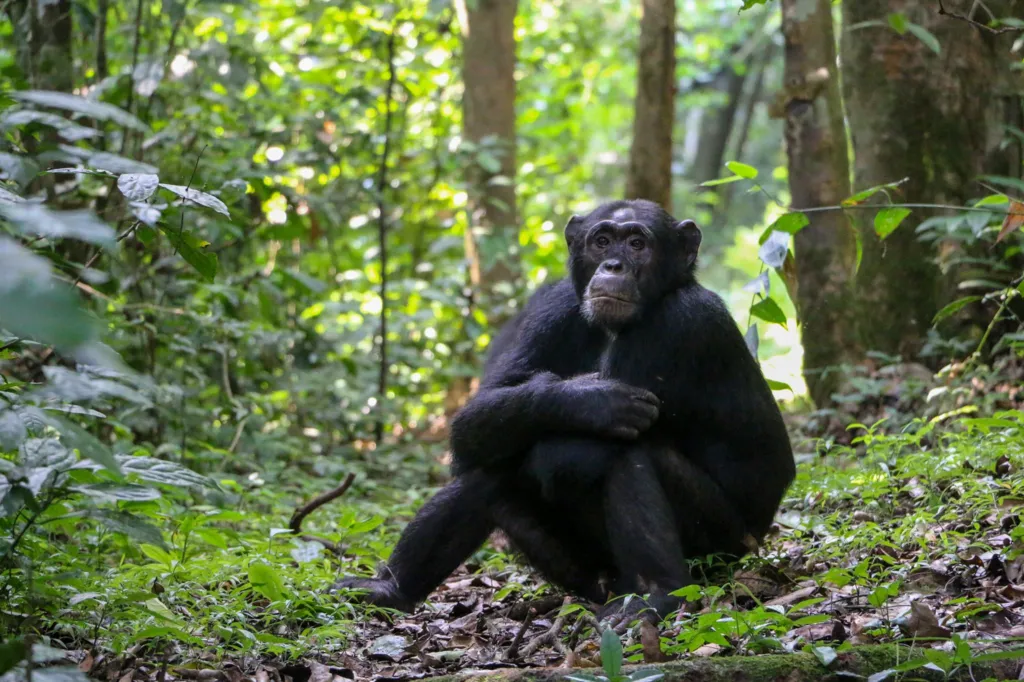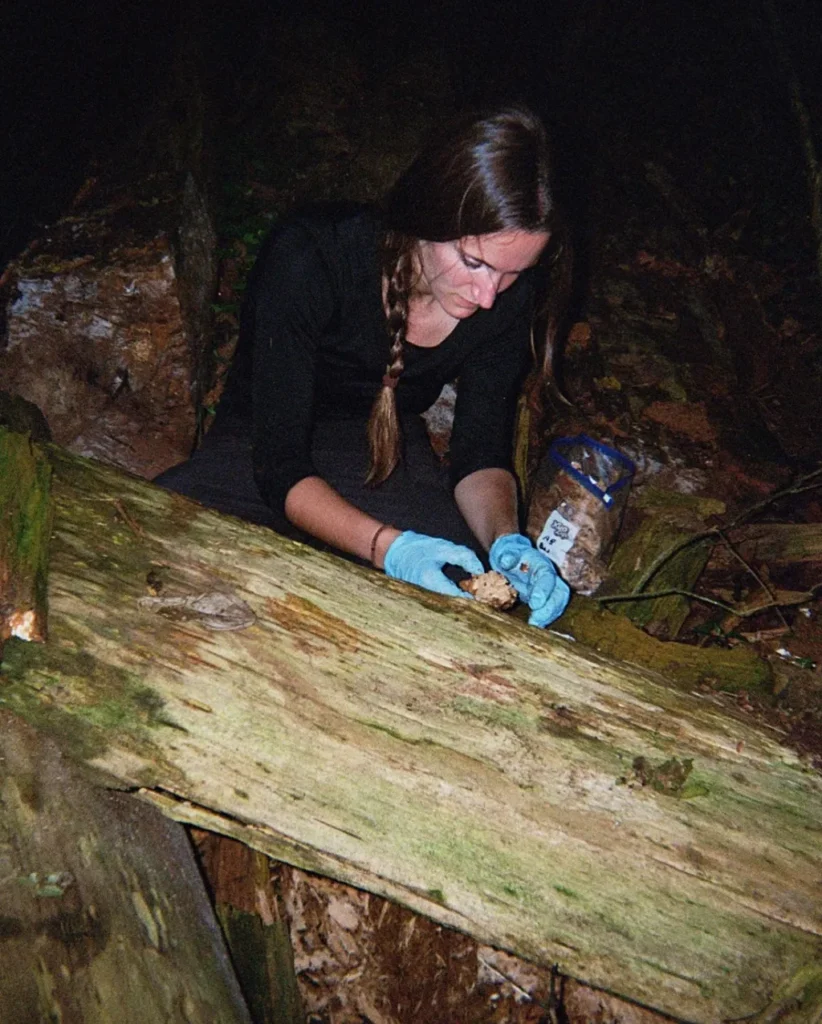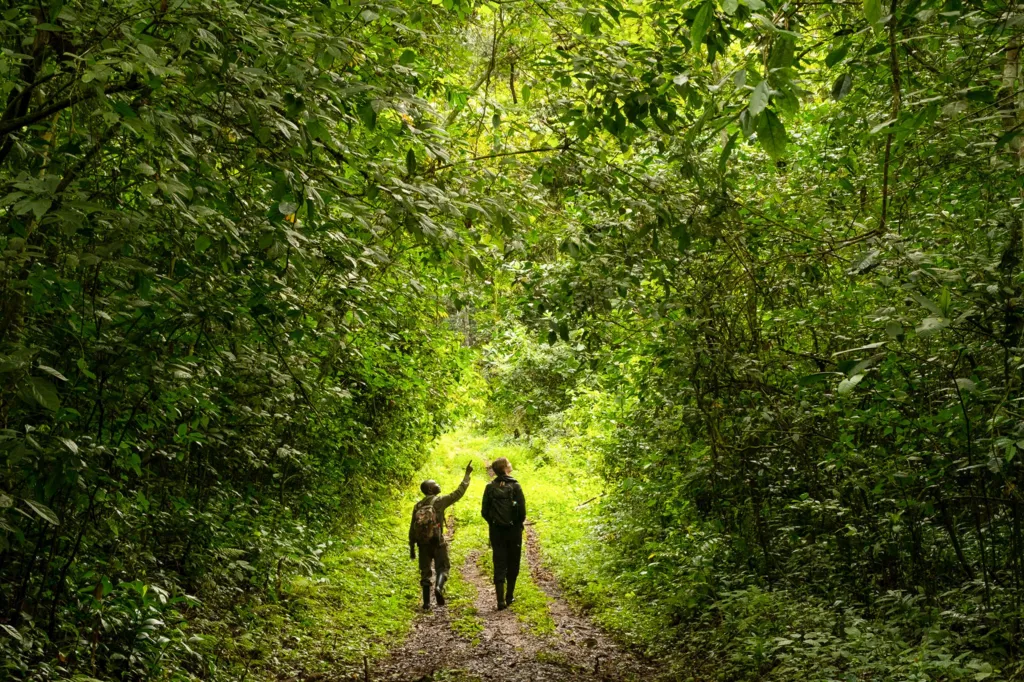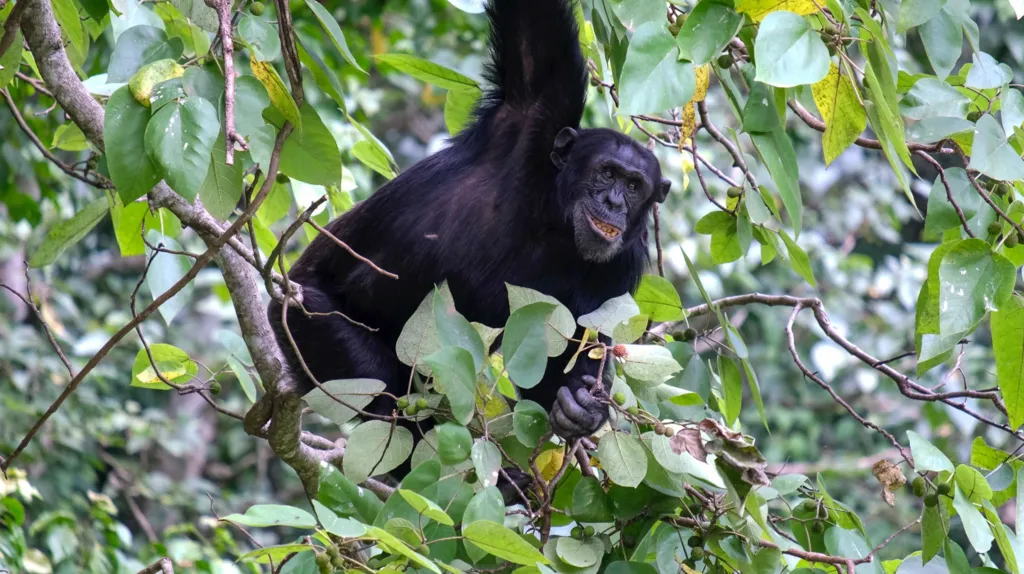Wild chimpanzees consume plants with pain-relieving and antibacterial properties to heal themselves, as observed by scientists. Their research involved meticulous observation in Uganda’s forests, watching injured or sick animals to determine if they were using plants for self-medication.
When an injured chimpanzee sought out a specific plant to eat, researchers collected samples of that plant for analysis. Many of the tested plants were found to possess antibacterial properties.
The scientists, who shared their discoveries in the journal PLOS One, believe that these chimpanzees could potentially aid in the discovery of new medicines.

“We can’t test everything in these forests for their medicinal properties,” stated Dr. Elodie Freymann, the lead researcher from the University of Oxford. “So, why not focus on the plants that the chimps are specifically seeking out?”
Over the past four years, Dr. Freymann has dedicated extensive periods to studying two wild chimpanzee communities in the Budongo Central Forest Reserve. She meticulously monitored signs of discomfort, such as limping or unusual body postures, while also collecting droppings and urine samples to identify signs of illness and infection.
Particular interest was taken when an injured or sick chimpanzee consumed items not typically part of their diet, like tree bark or fruit skins. “We were on the lookout for behavioral indicators that these plants might have medicinal properties,” Dr. Freymann elaborated.
She highlighted the case of one male chimpanzee with a severely injured hand, which stood out during her research.

“He wasn’t using the hand to walk; he was limping,” Dr. Freymann recalled. While the rest of his group sat around eating, the injured chimp limped away in search of ferns. “He was the only chimp to seek out and eat these ferns.”
The researchers collected and analyzed the fern, identified as Christella parasitica, which was found to have potent anti-inflammatory properties.
In total, the team gathered 17 samples from 13 different plant species and sent them to Dr. Fabien Schultz at the Neubrandenburg University of Applied Sciences in Germany. The analysis revealed that almost 90% of the extracts inhibited bacterial growth, and a third had natural anti-inflammatory properties, which could reduce pain and promote healing.
Dr. Freymann was pleased to report that all the injured and ill chimps in the study fully recovered. “The one who ate ferns was using his hand again within the next few days,” she explained.
“Of course, we can’t 100% prove that any of these cases were a direct result of eating these resources,” she said. “But it highlights the medicinal knowledge that can be gained from observing other species in the wild and underscores the urgent need to preserve these ‘forest pharmacies’ for future generations.”

